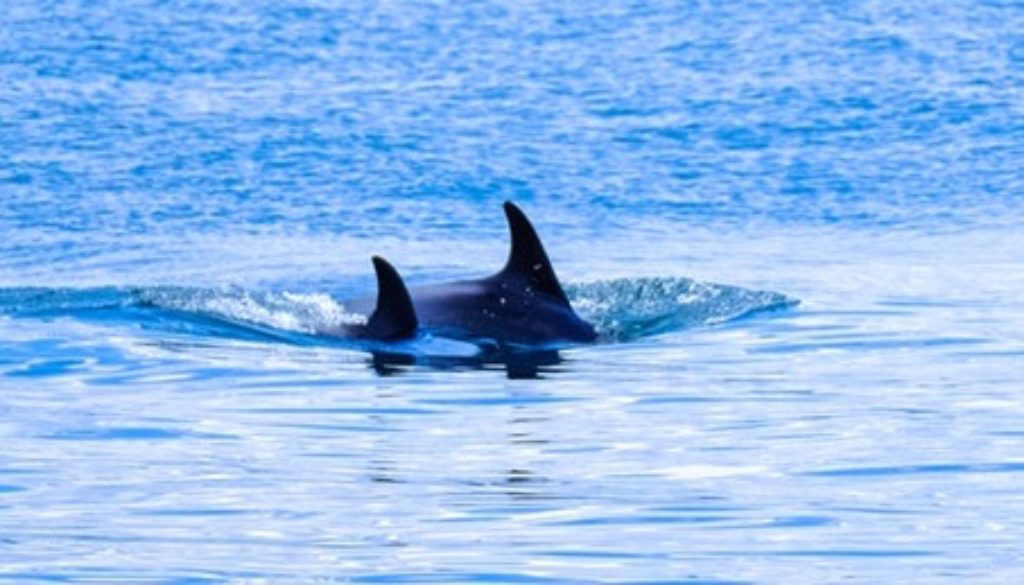Trans Mountain pipeline announcement raises new concerns about Federal commitments to killer whales
Vancouver, BC – CPAWS-BC is raising concerns about the federal government’s intentions to meaningfully pursue protection for endangered Southern Resident Killer Whales, after the announcement that the federal government will purchase the Kinder Morgan Trans Mountain pipeline and tanker project.
Last Thursday, the federal government announced findings under the Species at Risk Act that endangered Southern Resident Killer Whales face imminent threats to both survival and recovery, and that the government will “take immediate action to support the stabilization and recovery of the Southern Resident Killer Whales.” Despite these findings, the government announced yesterday that it will be purchasing and building the Kinder Morgan Trans Mountain pipeline and tanker project, which the National Energy Board stated “would likely result in significant adverse effects to the Southern Resident Killer Whale.”
Ross Jameson, the Ocean Conservation Coordinator for the Canadian Parks and Wilderness Society BC Chapter (CPAWS-BC), calls these conflicting messages worrying: “It is hard to imagine how the federal government will be able to follow through on their commitments to protect the Salish Sea and the endangered Southern Resident Killer Whales while owning a pipeline that threatens these very things.”
The federal government is currently working with First Nations, the province, local communities and stakeholders like CPAWS-BC to secure protection in the form of a National Marine Conservation Area Reserve for the Southern Strait of Georgia, which is critical habitat for Southern Resident Killer Whales in the Salish Sea. Supporters of the proposed marine protected area are concerned that the government’s buyout of the pipeline creates a bias that will prevent meaningful protection of killer whales and their home.
Southern Resident Killer Whales are listed as endangered in both Canada and the U.S., with only 76 individuals remaining. They face imminent threats to both survival and recovery, including pollution, lack of primary prey species, and shipping traffic. The federal government identified noise, pollution, and disturbance from vessels as primary risks to endangered orca populations in the Action Plan for the Southern Resident Killer Whales, but have failed to take action to limit these threats or protect orca habitat.
“Yesterday’s announcement raises concerning questions about the government’s commitments to Reconciliation, the Species at Risk Act, and the Ocean Protection Plan,” said Jameson. “How can the federal government continue to work in good faith with First Nations, the province, and local communities to protect key orca habitat in the Salish Sea, when they are directly invested in a project that may lead to the extinction of the Southern Resident Killer Whale?”
“If the government shifted their priorities away from building pipelines toward protecting wildlife, perhaps these killer whales would not be going extinct,” continued Jameson. “$4.5 billion would go a long way toward protecting Species at Risk and critical habitat.”
Visit http://homeoftheorcas.org to learn more.
-30-
Contact:
Ross Jameson, Ocean Conservation Coordinator, Canadian Parks and Wilderness Society BC Chapter (CPAWS-BC)
E ross@cpawsbc.org
T 778-953-2372
Canadian Parks and Wilderness Society (CPAWS)
The Canadian Parks and Wilderness Society (CPAWS) is Canada’s only nationwide charity dedicated solely to the protection of our public land and water, and ensuring our parks are managed to protect the nature within them. The BC chapter of CPAWS focuses on protecting the irreplaceable wilderness areas in BC. For more information visit www.cpawsbc.org

